- Home
- Harlan Ellison
An Edge in My Voice Page 2
An Edge in My Voice Read online
Page 2
Photo: Michael J. Elderman
And finally, I bring courage and my talent to this new place. They are as integral to what I will do and say here as are the walls and ceiling of this magazine, the print and paper you hold in your hands.
The courage to defy many of you in your pet obsessions; the courage to consider only the work and how it was produced, even when writing about my friends; the courage to take risks with my own self-interest. I make no grand statements about my fearlessness; it’s simply the way I’ve always done things and I have no control over it. Backed, however, by my talent. I will not dissemble: if I didn’t have the ability, you would not now be reading these words. There are many things in this life I cannot do, but there are a few I do very well indeed. One of them is write. I will expend the fullest measure of that talent in your behalf.
It is my intention to write a column each time that will reflect the Real World through a lens of fantasy, that will, I hope, give you a different view of what others try to hype you into accepting uncritically.
That’s okay. Millions are spent every year to get you to attend inferior movies, to believe talentless actors are Laurence Olivier, to sell you cheap goods and to bastardize your taste in food, art, life-style, goals and personal relationships. Those millions go to maintaining the status quo, also known as entropy. I am foursquare for chaos; I am anti-entropy. We will have wonderful arguments.
In the months to come I intend to write pieces on the arcologies of the visionary architect and dreamer Paolo Soleri, on the magnificent new PBS series Cosmos created by Carl Sagan, or the antic sense of humor of fantasy novelist Stephen King.
I know all three of these men, and have shared space and time with them. They may have said something to me they haven’t said to others. I’ll try to pass those new thoughts along to you.
In future columns I will review some films. I have written for television and films for almost twenty years, and much of the amateur nonsense you’re asked to believe prevents you from critically judging what is thrown at you by powerful and monied corporations. My critiques of these films will attempt to go behind the sound and fury of the publicity machines that grind on through the night.
There will be essays on new writers you should pay attention to at risk of your mortal soul, there will be encounters with celebrities and with everyday men and women like yourselves, there will be anecdotes of craziness and danger and even low and high comedy. There will be views of the world around you that will propound the theory that reality and fantasy have flip-flopped; and I will do my best to aggravate you. Not because I am mean of spirit, but simply and directly because nothing should be accepted without considering it fully.
In some ways I’m an Elitist. I do not believe that we are all entitled to our opinions. I do believe that we are all entitled to our informed opinion. George Orwell once wrote that “The great enemy of clear language is insincerity,” and to the end of providing you with clear language that informs and elucidates, I will be sincere, at risk of bringing down your wrath on me.
Because, as an Elitist, I believe that each of you has the spark of nobility and change in you. I believe that it is the remarkable men and women in every age who alter the condition of life for all of us, who move us away from the pit toward the stars. I cannot be convinced that Einstein and Elizabeth Cady Stanton and Galileo and Mary W. Shelley and Ralph Nader and Marie Curie were not better than those around them when they made their contributions to the human race. And I cannot be convinced that among you reading this there are no incipient Einsteins, Stantons, Galileos, Curies and Naders. In each of you, in some way, is the fire that we need to change the course of history. And to stoke that fire I will try to write of things and in ways that will get you aggravated enough to think.
All the while keeping you entertained, because that’s my job, and I’ve contracted to do it the best way I know how.
I’ll expect your help.
When you stumble across something interesting you think you’d like to see discussed in this space, drop a short line to me in care of this magazine. Don’t bother sending letters of praise telling me what a swell guy I am. I toss that kind of stuff in the waste basket. As many of you will think I’m terrific as will think I’m a card-carrying creep. Half of you will be right.
Don’t bother sending crazy letters. You know the kind I mean: Jesus loves you, I took a ride in a flying saucer, JFK was assassinated by aquatic killers from Atlantis, have you read your I Ching today, didn’t we know each other in a previous life, are you the Messiah, Marilyn Monroe is still alive and living in sin with James Dean in Madison, Indiana, will you marry me, are you my long-lost brother, Star Trek is greater than Hamlet, you are a Communist, how many angels can dance on the head of a pin or the head of Ronald Reagan, whichever comes first and is smaller. You know the kind.
From time to time I will pass among you, my people. I go out into the land frequently on lecture engagements, and I expect many of you to query me about whatever column has most recently come before your bright little eyes. Make yourselves known to me, but be polite. I have this cranky manner when rudeness manifests itself.
I’d thought perhaps I’d open my first column with a conversation I had with Ridley Scott, the director of Alien and The Duellists, when he came to visit a few months back; but something he said, about the time being ripe for a John Ford of science fiction films, has stuck in my mind. And I think I’ll go into that theory in depth next time.
Or maybe I’ll conduct the first interview with Marilyn Monroe and James Dean, direct from Madison, Indiana.
And if you conceive of this opening installment of the column as being terribly mild and polite, reassure yourself that it is only misdirection. From here on in, kiddo, the gloves are off. And so are we. Next time we set fire to the Welcome Wagon.
INSTALLMENT 2: 5 MAY 80
PUBLISHED 22 JULY 80 FUTURE LIFE #21 COVER-DATED SEPTEMBER
I despise writing obituaries. Nor had I intended this second outing to be any such thing: I had intended to talk about Ridley Scott and an interesting conversation we had a few months ago.
But George Pal dropped dead on Friday, May 2nd; and in the torrents of sorrow that wash over me at his passing I find myself unaccountably, against my will, clinging to a sharp, black rock of bitterness that prevents me from being swept over the falls and down the cascade of maudlin sentiments certain to present itself.
If you never met George, you are the poorer for it. He was a dear man. Beyond his unquestioned vision and expertise in matters cinematic, he had a genuine love and understanding of fantasy and science fiction at the highest levels. He was kind, he was gentle, he was conscientious; he was a gentleman. A word fallen either into ill-repute or into ridicule: the former because duplicitous thugs like Nixon or David Begelman have hidden behind the term, using it as misdirection while they carried on their criminal activities; the latter because it bespeaks a mien, a sense of personal integrity that doesn’t sit well with an encroaching cultural scene festooned with boobs who pierce their earlobes with safety pins and consider more than one exposure to bathwater every fortnight a social gaffe.
And it is George Pal’s unrequited devotion to gentlemanliness, to personal integrity, that causes the bile of bitterness to rise up in me as I contemplate his death by heart attack at the age of seventy-two.
Because for the last decade and a half, Hollywood let him languish in outer darkness.
That obsidian rock of bitterness will not allow me to weep the fat crocodile tears currently raining on the often-linked worlds of science fiction and motion pictures. Now that he’s gone, it’s warming and succoring to remember dear old George and how much he contributed to the melding of sf and movies. It’s charmingly hypocritical but nonetheless guilt-assuaging to talk about Destination Moon and War of the Worlds and The Time Machine, his box office triumphs, while ignoring the fact that it was seven years between the successful The Power (1967) and the commercially disastrous failure of
Doc Savage, Man of Bronze (1974). Seven years during which, in the vernacular, dear sweet old George couldn’t get arrested in this town.
Seven years of hustling, of trying to put together a deal, of taking ideas from studio to studio, trying to “blue-sky” them so he could get development money. Seven years trying to do what he loved to do…make movies.
And six years after the failure of Doc Savage, George was still hustling like a newcomer; having to talk sweetly to the much-vaunted “baby moguls” one-fourth his age and one-millionth his talent; having to eat the corporate rudeness and offhanded treatment; having to make appointments to visit these ex-agents, ex-time salesmen, ex-pr men, ex-vacuum cleaner salesmen who have jumped up into executive status; having to smile when the appointments were broken because something “more important” had come up to turn the executive’s attention, usually to the latest “hot” director or producer; having to smile when not even the executive but the executive’s secretary called to say, “Mr. Mogul will have to cancel his meeting with you next Thursday, Mr. Pal. We’ll call you when another, later date opens up.” Having to smile and bear the thousand insolences of the untalented, the dull and the meretricious: simply because they were the conduits to the development deals.
God, the ugly irony of it! That the one man who should have benefited most from the current boom in science fiction films became the man most excluded. The man who took the risks thirty years before the conservative second-raters began gorging themselves at the troughs was the man they chose to ignore to the point of total dismissal.
How it must have pained him these last fifteen years. How his soul must have cried out—not for victory, or triumph, or great wealth—simply for the chance. For a decently financed opportunity to get in there and create something fantastic with the new technology, to savor, if he chose, the liberality of subject matter, to have at his command the budgets that produced, for twice the money, half what he had done on a shoestring.
And I sit here three days after learning of George’s death, choking on black hatred and rancor at an industry too quick to dismiss its pioneers, too busy to be kind, too self-involved with its little rodent games of power and prize to honor with another chance those who were there before it was trendy. And here I sit with guilt, because I was in a position to help him…and I didn’t go all the way.
I cannot hide from the nasty truth that I am one with those of whom it can be said dealt him “more honoured in the breach than the observance.” There is a coppery taste of self-hate in my mouth as I cling to the black rock.
One with the approximately 140 others who attended the 1976 Nebula Awards banquet of the Science Fiction Writers of America at the Century Plaza Hotel in Los Angeles, I too stood and cheered, leaped to my feet and applauded as George Pal was given a special plaque by David Gerrold in behalf of the SFWA; a chunk of wood and a chunk of metal to honor George’s achievements in film that predated the birth of the Nebulas. It was easy to stand and cheer, and it seemed to make everything okay.
But it was merely another manifestation of the ways in which we liberalize our responsibilities to those who seek no honors but ask only for the chance to produce, to be allowed to work at their craft. It was eyewash, no matter how sincerely tendered. Because George was still beating the pavement trying to get a project on the wing.
And when he began calling late in July of 1979, asking me to come in on a project to do an updated version of When Worlds Collide, I thought only of the book I was writing, of the film I had just contracted to script, of all the deadlines I’d missed and the scarcity of time in any given day.
But he persisted. He honored me in the highest fashion by wanting to work with me. And finally I said I would try to help him get a deal going. Big man proffering largesse.
He had Universal interested. A young executive named Peter Saphier had expressed interest. I agreed to have a meeting with George and Saphier, but I said it was twenty-eight years since the original film, times and the way we look at films had changed, and to make simply an updated version of the old Wylie-Balmer book would be to stalk once again across terrain already scorched by schlockmeisters like Irwin Allen. I suggested he get a copy of J. T. McIntosh’s excellent 1954 disaster novel, ONE IN THREE HUNDRED, which I felt could be combined to salutary effect with When Worlds Collide to humanize and make more contemporarily relevant, to make more suspenseful, the skeleton plot of the original.
George found an old Ace paperback of the book, read it, and called me to say he thought it was a terrific conception. We had our meeting at Universal’s Black Tower on Friday, August 3rd, 1979. And I pitched the combined concept to Saphier. He seemed interested.
He took the two books and said he’d read them, and then we would meet again. When we left Universal together, George was like a kid again. He was up, he was ebullient, he saw a chance emerging. And I dashed his hopes by saying that I was so tied up with commitments that I wouldn’t be free for perhaps a year. He smiled. Gentleman to the end, he smiled and said, well, we’ll see…maybe you’ll get finished sooner than you think. I smiled back, but I knew it couldn’t be. But I didn’t want to hurt him. But I didn’t want to feel guilty. So I smiled and said, maybe, we’ll see.
On Tuesday, August 28th George and I met Saphier for lunch at Musso & Frank’s Grill in Hollywood. The Universal executive—a better man than I because he was willing to give George the chance—said he would be willing to enter into a step-deal of development. But only if I’d be part of the package.
George looked at me, oh God I’ll never forget that look, and I think in that instant I saw his future in his eyes. And I didn’t say okay I’ll do it. I said I was up to my ass in work and was sinking fast and I didn’t think I’d be free for six months or a year. And the smile held on George’s dear face, but the light died a little.
It never came to be.
We never made the deal.
Universal thought of him as an old man, past his prime, not one of the new wave of hotshot director/producers. He was an ancient stone unfit for splendid new monuments like Jaws II or 1941 or Meteor.
George Pal died on Friday, May 2nd with his integrity intact, with a half dozen projects proposed and none in work.
He called me on the evening of April 28th, four days after the jury in Federal District Court delivered up its judgment in favor of Ben Bova and me to the tune of $337,000—final vindication for me in my four-year battle to prove plagiarism on the part of ABC-TV and Paramount Pictures and a man named Terry Keegan. He called to congratulate me, to tell me how pleased he was that we’d won. His suit against Paramount over The Time Machine ripoff was still dragging on. He called, because he was a friend and a gentleman, to say he was proud of me, that I’d struck a blow for writers everywhere and he held me in esteem.
I didn’t take the call. I was having dinner with friends and my assistant, Marty Clark, took the call. “Be very kind and gentle to him,” I said. “He’s a dear man and a friend.”
But I didn’t speak to him.
And four days later he was dead.
Seventy-two years old, a gentle man with talent to spare right up till the end, who was shunted aside by those who could have cared a little more.
And I cling to this black rock of self-loathing and detestation of the industry in which I serve my time, and I’m not entitled to cry for the loss of George Pal.
But you are. Because you’ve lost more than you know. As they say, usually with as much guilt as I say it, his like will never be seen again.
Interim memo
In this column, I wrote “The going rate for a sixty-minute teleplay these days is $9972 with a raise expected after the upcoming Writers Guild contract negotiations later this year.” That information is four years old. We had a strike, we lost some things and we gained some things; and the going rate is higher as the book is published. Initial compensation (that is, not counting subsequent residuals for reruns) for a sixty-minute teleplay in the categories of drama or comedy, for eith
er network primetime or pay-tv, is $14,318. And they still bust your back and make your life a living hell. One should remember that there are some filthy jobs for which no amount of money can compensate. Not that it’ll put off by even thirty seconds those of you all too willing to fling yourselves under the behemoth wheels of tv writing. (Have you ever noticed how anxious some people are to sell their souls, and would do it if only there were buyers?)
INSTALLMENT 3: 9 JUNE 80
PUBLISHED 2 SEPTEMBER 80 FUTURE LIFE #22 COVER-DATED NOVEMBER
If this guy was a Director, then I was the reincarnation of Charles Dickens. It was years ago, and he’s probably still feeping around in the television graveyard sucking the marrow out of scripts like some hideous Lovecraftian creation, a nameless horror of the coaxial wasteland, so I won’t name him.
Wouldn’t matter, anyhow. You’d say who?
Which anonymity is probably the most benign justice that could be meted out to a man of such impoverished talent. There were moments, however, when he was allegedly directing a script I’d written, during which I would have appealed to the Revolutionary Council to have his hands or his viewfinder loupe lopped off in the time-honored manner of Islamic justice.
He had raised hell with the producers of the series because I’d written such an exhaustive teleplay: all the camera angles and specific shots detailed for the cinematographer.
But that’s the way I work. Always have, since I got to Hollywood in 1962. Never felt that a scenarist was doing the job properly unless the script was written visually; and that always meant to me the process of visualizing what the camera would see. The process was effectuated by my actually closing my eyes and running the movie in my mind. Then I’d open my eyes and describe in cinematic terminology what I’d seen in the viewing room of my mind.

 Repent, Harlequin! Said the Ticktockman
Repent, Harlequin! Said the Ticktockman Broken Glass
Broken Glass Other Glass Teat
Other Glass Teat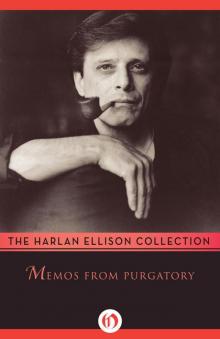 Memos From Purgatory
Memos From Purgatory I Have No Mouth and I Must Scream
I Have No Mouth and I Must Scream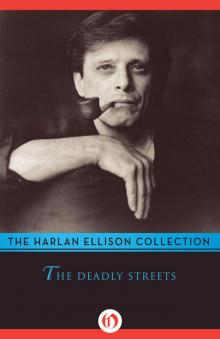 The Deadly Streets
The Deadly Streets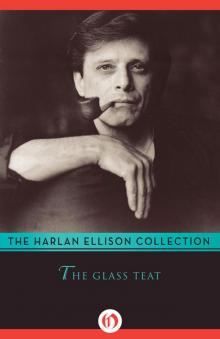 The Glass Teat
The Glass Teat Paingod and Other Delusions
Paingod and Other Delusions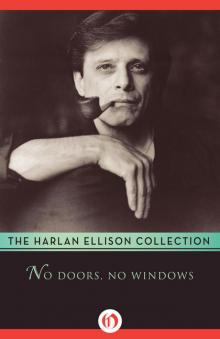 No Doors No Windows
No Doors No Windows Strange Wine
Strange Wine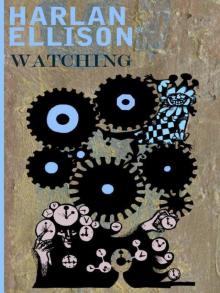 Harlan Ellison's Watching
Harlan Ellison's Watching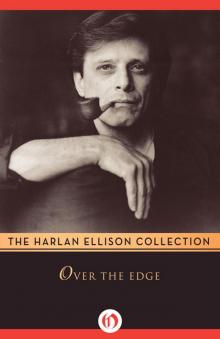 Over the Edge/An Edge in My Voice
Over the Edge/An Edge in My Voice Troublemakers: Stories by Harlan Ellison
Troublemakers: Stories by Harlan Ellison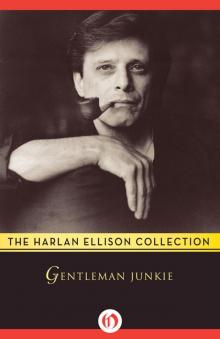 Gentleman Junkie and Other Stories of the Hung-Up Generation
Gentleman Junkie and Other Stories of the Hung-Up Generation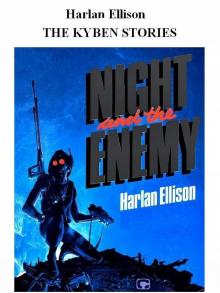 The Kyben Stories
The Kyben Stories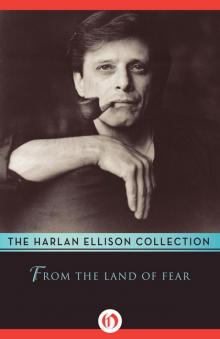 From the Land of Fear
From the Land of Fear The Top of the Volcano: The Award-Winning Stories of Harlan Ellison
The Top of the Volcano: The Award-Winning Stories of Harlan Ellison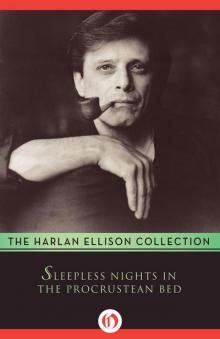 Sleepless Nights in the Procrustean Bed
Sleepless Nights in the Procrustean Bed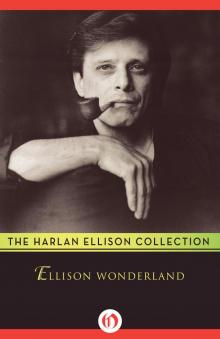 Ellison Wonderland
Ellison Wonderland Children of the Streets
Children of the Streets Can & Can'tankerous
Can & Can'tankerous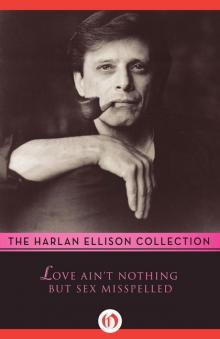 Love Ain't Nothing but Sex Misspelled
Love Ain't Nothing but Sex Misspelled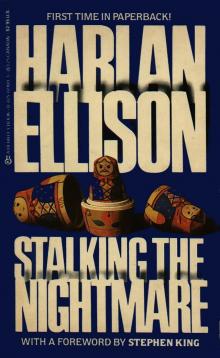 Stalking the Nightmare
Stalking the Nightmare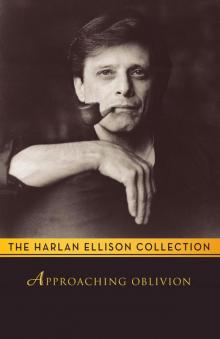 Approaching Oblivion
Approaching Oblivion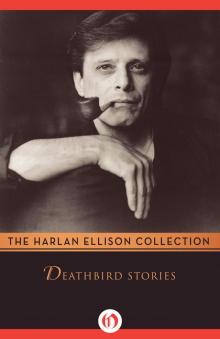 Deathbird Stories
Deathbird Stories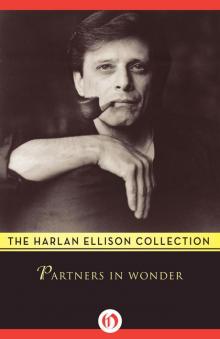 Partners in Wonder
Partners in Wonder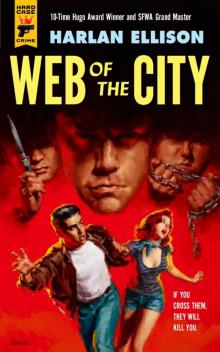 Web of the City
Web of the City Spider Kiss
Spider Kiss A Boy and His Dog
A Boy and His Dog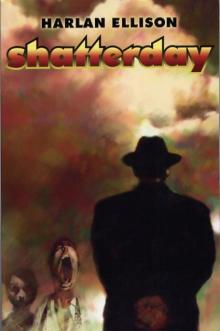 Shatterday
Shatterday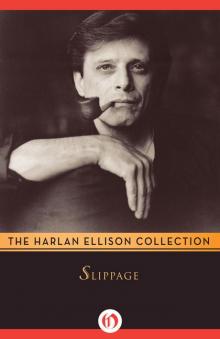 Slippage: Previously Uncollected, Precariously Poised Stories
Slippage: Previously Uncollected, Precariously Poised Stories Repent, Harlequin! Said the Ticktockman
Repent, Harlequin! Said the Ticktockman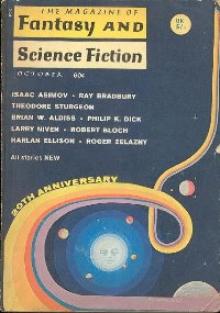 Come to Me Not in Winter's White
Come to Me Not in Winter's White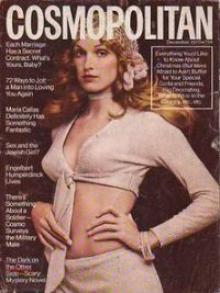 The Song the Zombie Sang
The Song the Zombie Sang The Other Glass Teat
The Other Glass Teat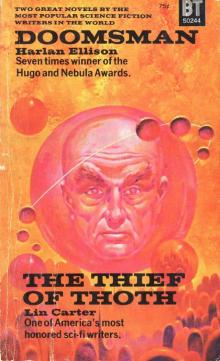 Doomsman - the Theif of Thoth
Doomsman - the Theif of Thoth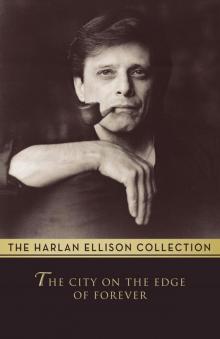 The City on the Edge of Forever
The City on the Edge of Forever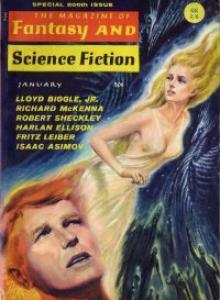 I See a Man Sitting on a Chair, and the Chair Is Biting His Leg
I See a Man Sitting on a Chair, and the Chair Is Biting His Leg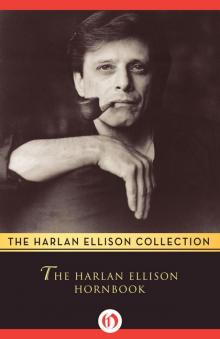 The Harlan Ellison Hornbook
The Harlan Ellison Hornbook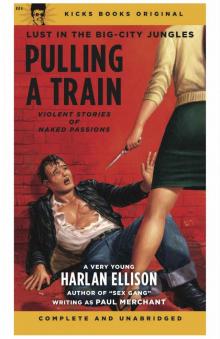 Pulling A Train
Pulling A Train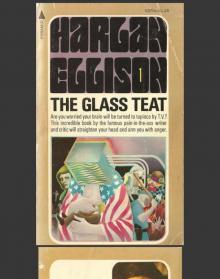 The Glass Teat - essays of opinion on the subject of television
The Glass Teat - essays of opinion on the subject of television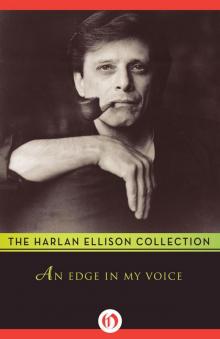 An Edge in My Voice
An Edge in My Voice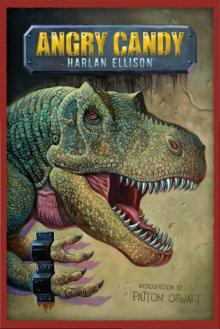 Angry Candy
Angry Candy Troublemakers
Troublemakers The Top of the Volcano
The Top of the Volcano Over the Edge
Over the Edge Survivor #1
Survivor #1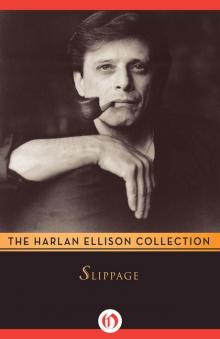 Slippage
Slippage